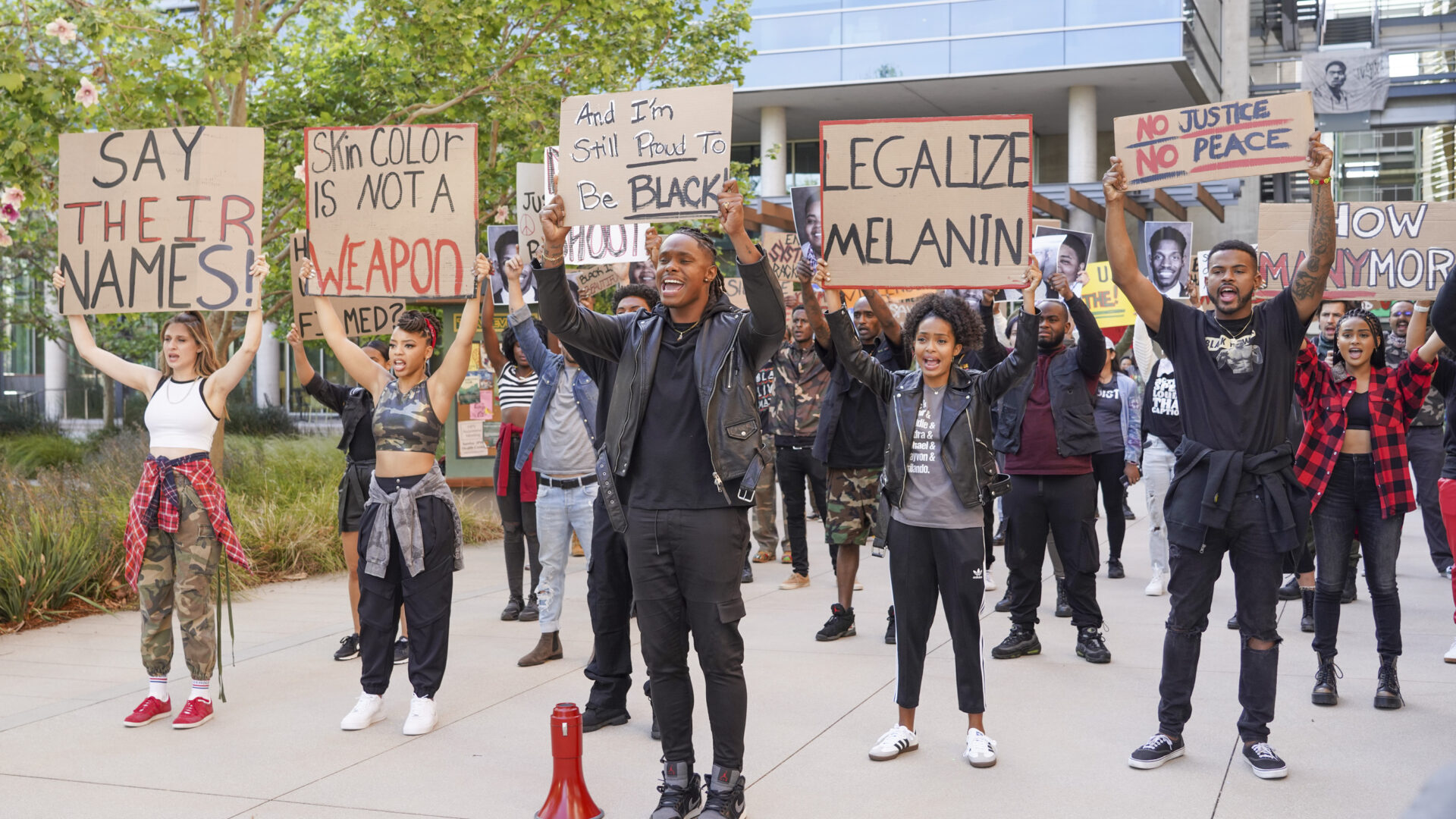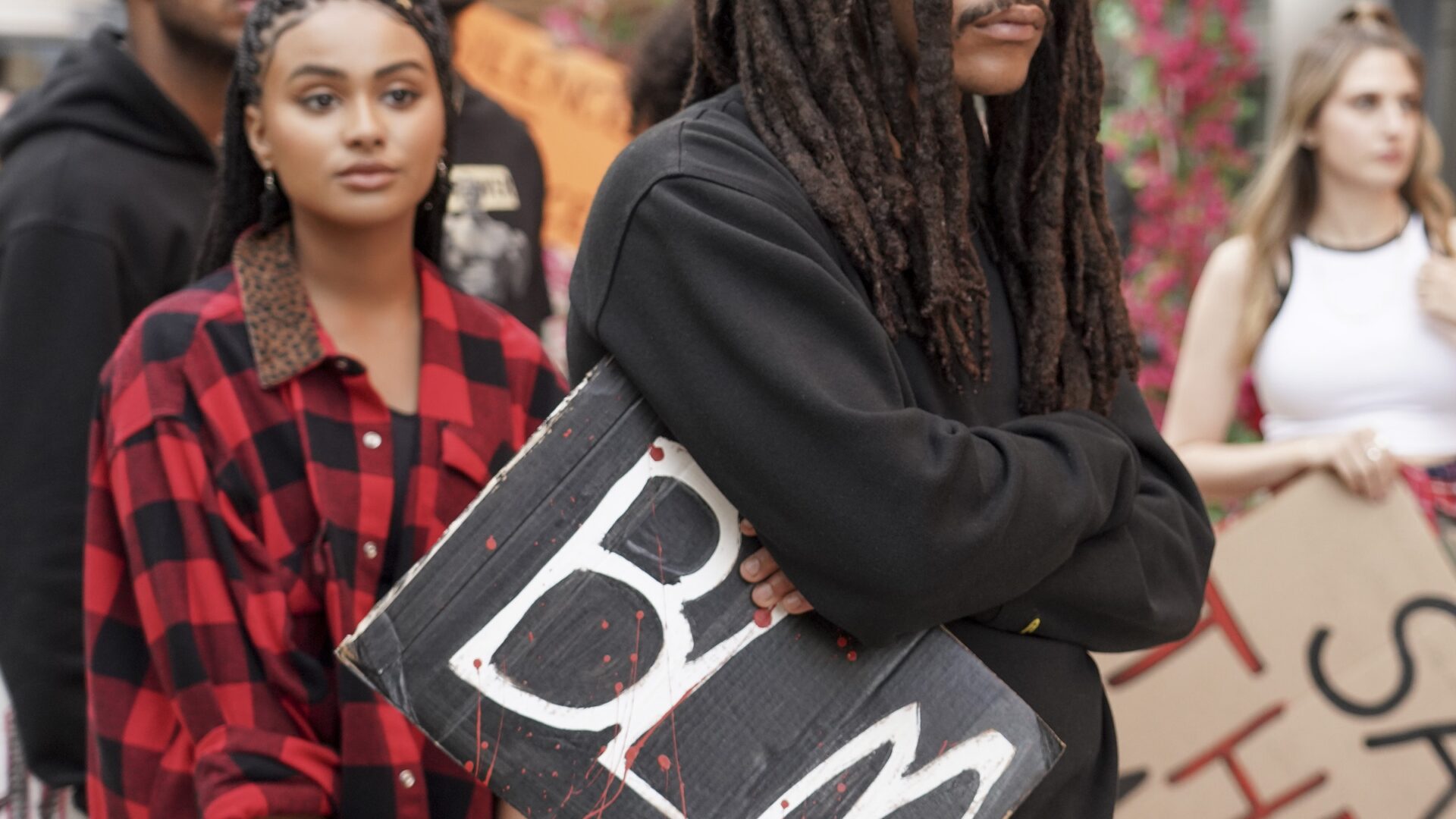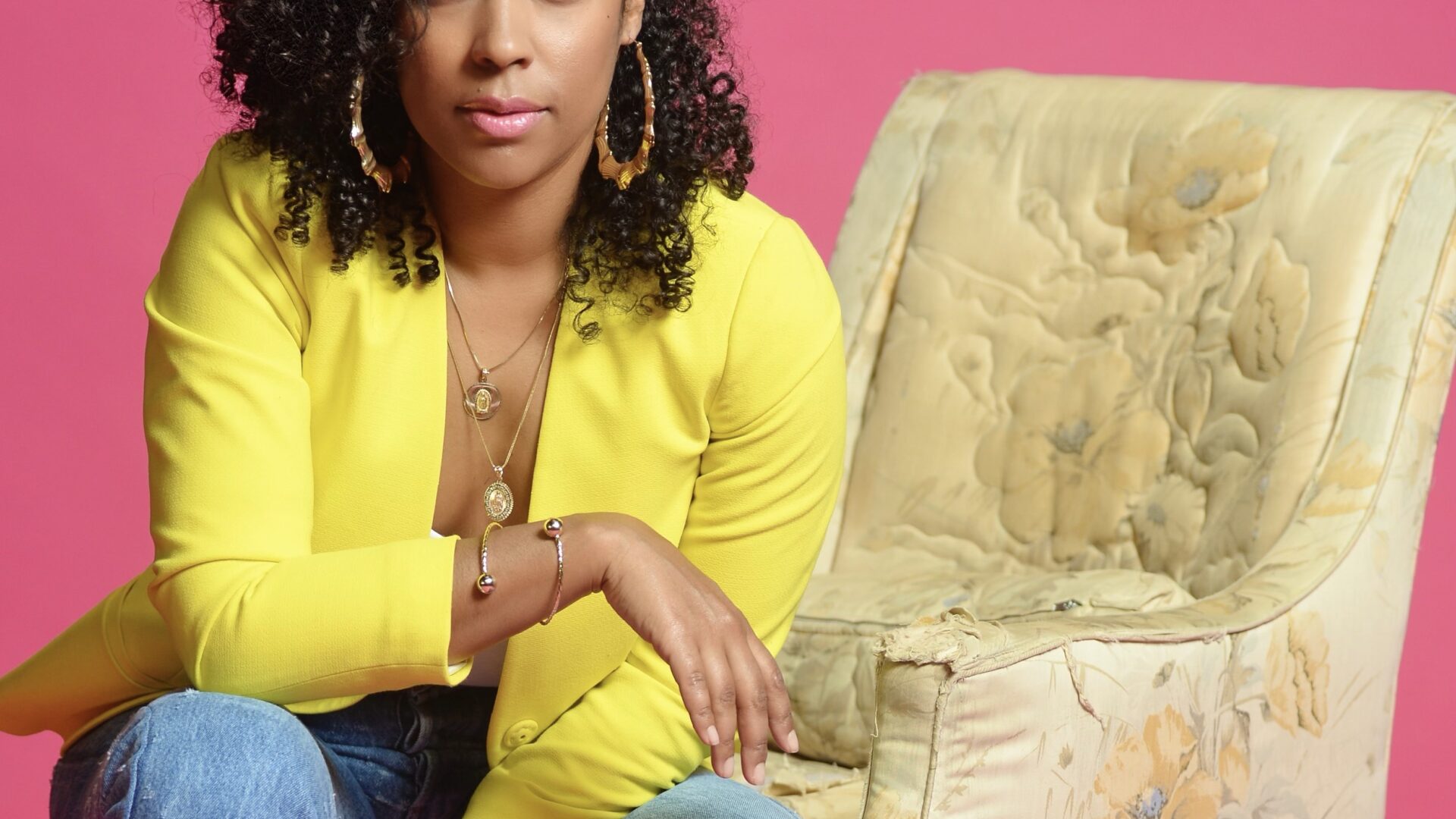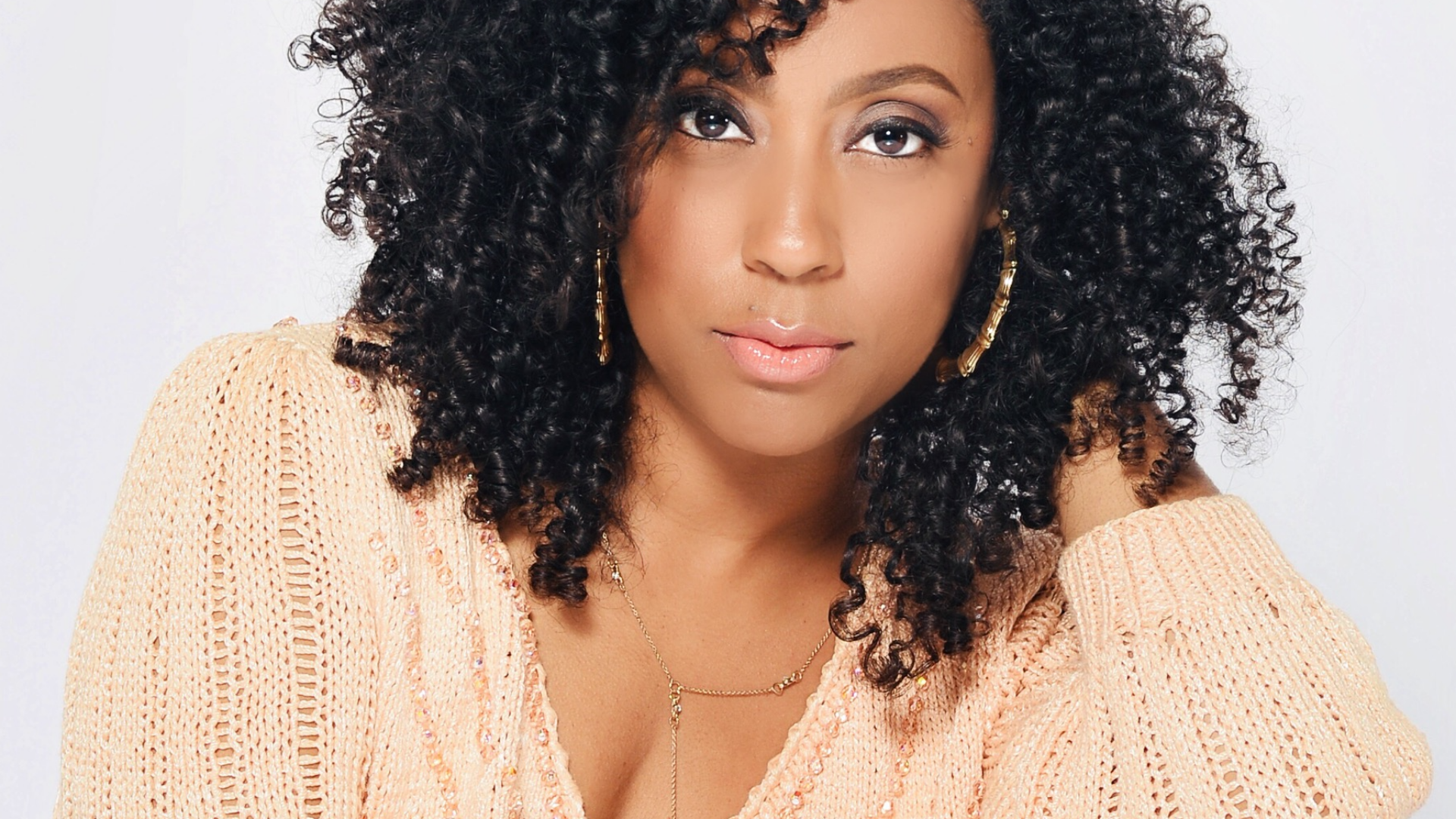
Grown-ish is one of those shows that has its finger on the pulse of the culture. From suicide awareness and mental health, to sexuality and relationships, the Black-ish spinoff gives the most authentic on-screen college experience that it can, while tailoring each character’s plot to someone we can either directly relate to or know someone like them.
According to Grown-ish executive producer and director Jenifer Rice-Genzuk Henry, senior year means bringing closure to some of our beloved character’s storylines. “We will see some maturity and advancement in these characters that we’ve spent the past four seasons developing,” Henry told Girls United. What started as these naive freshmen embarking on this college-bound journey who met in Charlie’s classroom have now evolved in their own lights. “Now, we will see them reach the end of this journey where they’re scared and nervous about setting off on this new journey in terms of adulthood. Hopefully, the audience will be able to take away the fact that life is constantly about beginning all over again.”
GU had the chance to catch up with Henry about this season of Grown-ish, filming two episodes during the Derek Chauvin verdict, and the importance of shaking the table through media and television.

Girls United: How has Grown-ish evolved since the first season in the realm of addressing current events?
Jenifer Rice-Genzuk Henry: I would love to believe the show has always done an amazing job since season one of trying to explore extremely relevant social issues that college students and young people, in general, can relate to. All the way back from season one, we were trying to dive into specific subjects. Zoey was struggling with Adderall and keeping up with schoolwork. We took a look at Jazz and Sky‘s experience with dating [and] that episode tackled colorism. We talked about Ana being a Republican.
In terms of evolution, I would give credit to the fact that we have grown with these characters and so we’ve seen them evolve. We’ve seen Nomi’s character become a single mom. We have seen Zoey, who has gone from being this self-absorbed, vapid character to taking more of a leadership position, quitting school, going out into the workforce, and realizing that she wanted to slow the process down. We’ve watched these characters evolve and as they evolve, that allows us as writers to spread our wings with the storylines.
GU: How difficult was it to address white fragility on a network that is predominantly white, but on a show that has a very diverse, inclusive cast?
Henry: It’s interesting [because] that subject matter was brought to us. The writer of the episode Wade Allain-Marcus was part of the writer’s room. We just purge and talk about our experiences and this was going on at the time when all of the protests and looting were happening. He recalled a conversation between him and one of his white friends while they were playing Zoom poker or something. His friend made a comment about how he totally empathized with what was going on, how he felt so bad about all the police brutality and everything, but he paused and said, “But you know, the looting …” in a way that kind of put Wade off. He felt that he had to enlighten his friend about just why the looting should be the last thought in light of everything that was going on.
Once we started to dive deeper into how to have these uncomfortable conversations with our friends who might not be Black or who might not understand it, that’s when we started to touch on the idea of white fragility. Immediately, when you’re trying to explain to some of your white friends “here’s the history” or “here’s our difficult relationship between how we protest and how we express ourselves in light of this trauma,” it became interesting in terms of how defensive. It’s like, “Are you saying that I don’t sympathize with you?” It just became a really interesting subject matter.
What was really funny too was when we were breaking that story, I felt like some of the white writers were…It was a delicate balance as they’re trying to not villain-ize Nomi because they were like, “Oh, no, she can’t say that,” or, “We want to be really careful.” Listen, we’re just trying to be organic, have a real conversation and let it play out the way it would naturally happen between two people who may not share the same idea about the circumstance.
GU: What are some of the most integral things that the cast adds when bringing the script and the direction to life?
Henry: I think all of them are incredibly intelligent and thoughtful humans. You have Yara [Shahidi] who’s poised to be the next president. Yara on set is always very aware of what it is that we’re saying, how a character is going to come off, and being thoughtful to the group of people that we might be addressing. It just feels like mutual respect between the actors and what we’re doing as writers and producers. They trust us and we certainly trust them. They have their pulse on the culture, so we rely on them if ever we’re off-set. They’ll say, ‘Maybe we’ll tweak something here or adjusted here.’
All of them are active and involved, and they want to tackle the difficult subject matter, which makes it a lot easier to write these stories and to direct these episodes. Even in the episode talking about white fragility, Emily Arlook was very careful and intentional about the way that she presented the subject matter. There was a moment where she came to me and I think in the way she was playing the scene, she was starting to cry. She was like, ‘By crying, am I playing into the white fragility? Is this making her exactly what they’re accusing her of?’ We were like, “If anything, I think it shows how deeply it affects her and touches her.” I say that to say that there is a sensitivity about how they’re representing these characters, but also to make sure that we’re saying something correctly.

GU: I want to speak with you specifically about episodes 405 and 406. Those episodes were being filmed right as the verdict for Derek Chauvin was announced. While you were in the midst of filming, what was that emotional experience like for you, the cast and the crew when you were doing something that was so timely?
Henry: We started breaking episode 406 right in the midst of everything that was happening. We started episode 405 shortly after the Ahmaud Arbery situation then, we planned on ending the episode there. Right on the heels of that story being broken, the George Floyd incident happened, which is when we said, “Okay, we can’t leave it here. We have to continue the story.” The final day of production when we were wrapping on the last day of the block fell on the day that the Derek Chauvin verdict was being announced. We knew that the verdict was happening somewhere around the afternoon and I knew, just from strictly a director standpoint, this can completely make or break our day depending on the outcome of this.
We broke for lunch and I went back to my trailer. I was alone. I was on speakerphone with my husband, I was watching it from the computer and they made the announcement. Even though it was the outcome that we all wanted, it was still so emotionally heavy. Coming back after the verdict right after lunch, we went immediately into filming this scene where all of the kids were gathered around the TV and they announced the second murder which launches us into episode 406. It was silent. The tears that you see in the actual episode are real tears, and it was such a strange but poetic kind of moment.
I remember the writer of episode 405, Des Moran, texting me, “This is oddly poetic the way that we started at the beginning and we’re ending here on the final day of production.” The eerie thing about it all is knowing that it’s still not a final stamp like, “Oh, all’s well that ends well,” because we know that this is a continuing subject matter and issue that we will have to, unfortunately, continue to experience.

GU: What is the importance of addressing topics of identity, sexuality and race beyond the just Gen Z shows and into larger conversations on TV and movies?
Henry: Art is the imitation of life. Some people would say that to witness some of this stuff almost feels like having to revisit trauma and a lot of people will say, “I don’t turn into a TV show to be reminded of the issues that we’re tackling. I tune in for comfort.” In this day and age, there is programming that’s specifically for that. When you’re talking about a television show that specifically focuses on youth, it would be irresponsible and inorganic not to do that, not to tell the story, not to enlighten.
I do believe that there is a time and place. There are certain programs where when you tune in, you’re not necessarily looking to touch on those subject matters. When we tune in to that sort of programming, we know that we are intentionally tuning in for that escape. With this particular show, you know that we’re talking about college students, and it would lean to me on the irresponsible side not to. I applaud the fact that more programs are doing that. It’s bringing awareness [and] it’s sparking conversation. Whether or not it’s a comfortable conversation, I’m not sure that’s always the case, but even as one of our characters says, it’s time to start being comfortable being uncomfortable. It pushes the conversation forward. The end goal is always to constantly make steps towards progress.
Missed last week’s episode of Grown-ish? Watch a snippet of a conversation about performance and social media activism between the Cal U cast students!
Photo Credit: Freeform/Tiffany Roohani